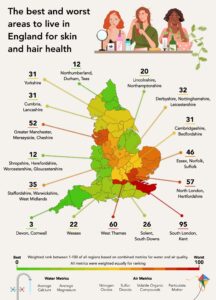UK Small Businesses to Benefit from Increase in Employment Allowance

Following the announcement from Rishi Sunak at the Spring Statement, the Employment Allowance has increased from £4,000 to £5,000, meaning that smaller businesses will be able to claim up to £5,000 off their employer National Insurance Contributions (NICs) bills. Announced last month by the Chancellor, the change takes an extra 50,000 firms out of paying NICs and the Health and Social Care Levy – increasing the total number of businesses not paying NICs and the Levy to 670,000. Luke Davis, CEO of IW Capital, a leading private equity house who provide investment for small businesses said that this tax cut is a welcome introduction and helps SMEs do what they do best – creating and sustaining jobs whilst driving the UK’s economy.
After a promising start to the year, 40% of UK small and medium sized businesses are planning to hire, on average, six new employees before the end of March as they look to continue to grow and progress their company. The tax cut is seen as the newest move from the Government to aid small businesses as the Chancellor said the cut was intended to ‘help SMEs thrive and grow to help drive our economic recovery’.
One of the most impressive facets to the UK’s private sector is its dynamic small business landscape. SMEs throughout the UK saw impressive growth throughout 2021 and have continued this momentum into 2022 with 56.2% reporting a rise in earnings in the last quarter of 2021 versus the same period of 2020. The small business eco-system is predicted to be a ‘boom’ sector throughout 2022 for UK business with small businesses looking to drive employment and investment numbers with 58% predicting an increase in revenue this quarter compared to last year.
SME investing can represent an exciting opportunity for investors, providing them with tax benefits and a realistic chance to maximise their returns. In 2021 there were a record 319,000 new businesses registered in the UK, with the number of small businesses now standing at 5.5 million, with recent research showing that two-thirds of the UK workforce want to start their own company. This shows a continued desire, caused by the pandemic, for individuals to start a business of their own in the UK.
With 16% of UK investors looking to back start-ups and newly formed businesses it seems they will be given a platform to continue the success and progression of their companies throughout 2022. Investors are ready to back small businesses and they are ready to maximise this exciting opportunity. It seems to be an exciting time for small businesses in the UK and it poses an exciting, alternative investment prospect for investors.
Luke Davis, CEO of IW Capital discusses:
“The rise in the employment allowance offers a bit of breathing space for small businesses. With several major factors currently affecting the business environment, this will help ease some pressure on UK SMEs and should allow them to continue to grow and progress. Small businesses have worked so hard throughout the last year, not just to survive but to prosper and with restrictions ending the small business sector looks set to revel in the opportunity to grow their operations significantly throughout 2022.
“SMEs are set to drive employment and investing throughout 2022 – with nearly half of UK SMEs looking to hire new employees after a promising start to 2022 and UK investors ready to back start-ups and newly formed businesses SMEs are ready to make 2022 an impressive year and grow as much as possible throughout the year.
“The EIS could also be an important trend throughout 2022. The EIS can be said to offer a win-win situation for both investors and small businesses – providing SMEs with much-needed investment to provide them with a platform to grow, whilst providing investors with tax reliefs to incentivise this investment. Small businesses and SMEs throughout the UK have benefitted enormously from the EIS in the last 25 years, fuelling growth and job creation at an impressive scale.”




